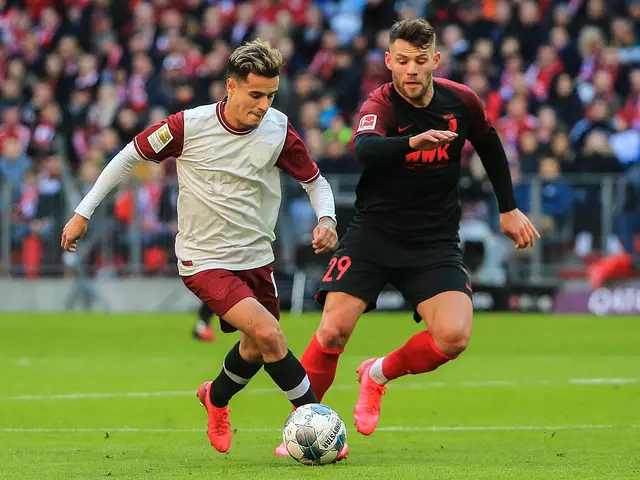German football is set to face major challenges about its future. Its concept allowing the professional leagues to return to action by running games behind closed doors has received worldwide appreciation, making it a trendsetter during the COVID-19 crisis.
But decreasing income out of TV deals, targeted transfers, permanent staff having to accept wage cuts, and the questions of how many fans are allowed to attend the games of the 2020/21 season draw a dark shadow over Germany as one of the leading world football countries.
To just return to habituated procedures seems impossible. It is becoming increasingly evident that football, as fans knew it, might be a thing of the past.
TV-MONEY
While negotiations about a new TV deal for the time after the 2020/21 season are ongoing, clubs already have to accept losses for the current agreement. The league association valued the declining revenues for the current season at over 200 million euros.
Instead of the agreed 1.35 billion euros for TV rights of the national leagues, only 1.2 are going to be paid out. International income will decrease by at least 60 million.
The current losses indicate future reductions.
Internal reports speak of an expected loss regarding payments of the UEFA for Champions League and Euro League participations.
This is said to affect national solidarity payments of leading clubs for smaller sides.
According to association calculations, the reigning national champion Bayern Munich is ahead in losses of 7.2 million (domestic) and 9 million (international). For Bundesliga newcomer SC Paderborn the losses mount to 4.2 million.
TRANSFERS/COST SAVINGS
Thomas Mueller unintentionally triggered a debate about new faces and simultaneously implemented wage cuts for permanent staff such as players and regular staff.
The Bayern Munich striker called it paradoxical to talk about costly arrivals and wage cuts at the same time.
Media said the discussion part of professional football burdens. Bayern sports director Hasan Salihamidzic accused Mueller of having transgressed his competencies while Germany's number one Manuel Neuer reminded of "two perspectives" involved.
Bayern is said to target Leverkusen midfielder Kai Havertz and Citizens striker Leroy Sane. Both transfers have an assumed size of over 140 million euros.
Several clubs cut down numbers of ordinary employment staff like Schalke. Some consider applying for COVID-19 government emergency loans (Bremen). Others forced parts of their regular staff into short-work (67 to 77 percent of monthly salary) relying on state support.
TICKETS/FANS
Ticket sales for the next season are the major issue among fans. While association and clubs target September 11 as the starting point for the 2020/21 Bundesliga season, it remains uncertain when fans are allowed back into the arenas.
Considering current social distancing rules, only 20 percent of the usual numbers would be allowed. Extended entrance controls and personalized tickets aside from the permission to only sell seating places are most likely.
First-tier sides usually sell 23,000 season tickets on average.
Some clubs have stopped ticket sales for the upcoming season. Others, such as Fortuna Dusseldorf, already sold 10,000.
Borussia Dortmund is usually giving out 53,000 season tickets. Reports speak of clubs, possibly having to organize price draws.
Some clubs count on the strategy to offer refunds for ticket holders.
Schalke experienced how tricky things can develop. The club annoyed supporters by demanding a detailed list of their economic situation. The club indicated that ticket payments might not be returned. After intense protests, the Royal Blues had to withdraw their insensitive procedure.
(by Oliver Trust)
 简体中文
简体中文








